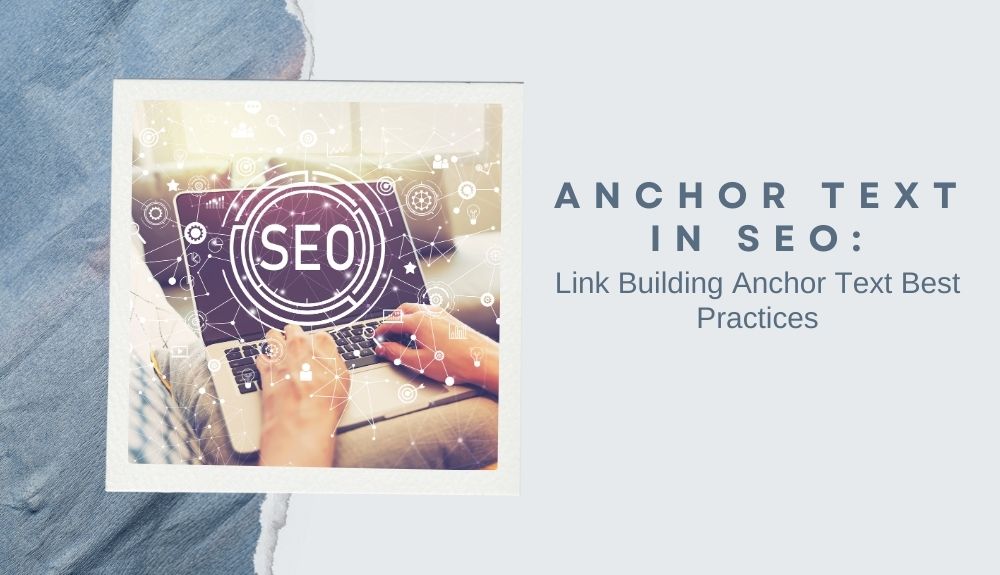It is essential to keep track of Google algorithm updates in 2024 to ensure a solid online presence. These changes impact the ranking of websites in search results, which in turn impacts their visibility and traffic. It is crucial for businesses and digital marketers to comprehend these changes in order to adjust strategies and maintain ranking stability.
Google’s algorithm updates are designed to improve user experience by giving preference to top-notch, pertinent content. The August 2024 core update aimed to enhance search result quality by boosting genuinely helpful content and decreasing material tailored only for search rankings. It’s important to match content with Google’s changing standards as this can greatly affect website rankings.
Adhering to SEO best practices is key to navigating these updates. This includes creating valuable content, optimizing for mobile devices, and ensuring fast page load times. By implementing these strategies, businesses can maintain ranking stability and adapt to algorithm changes effectively.
A Look Back: Major Algorithm Changes Leading Up to 2024
Over the past few years, Google has implemented several significant algorithm updates that have reshaped the landscape of search engine optimization. Understanding these changes is essential for maintaining ranking stability and adhering to SEO best practices.
In 2023, Google introduced multiple core updates aimed at enhancing search result quality. The March 2023 core update focused on improving the relevance of search results, emphasizing the importance of high-quality content. Subsequent updates in August and October 2023 continued this trend, refining Google’s ability to assess website content and user experience.
The November 2023 reviews update focused on encouraging high-quality, informative reviews to help users make knowledgeable choices. This update highlighted Google’s dedication to recognizing content that shows expertise and trustworthiness.
In March 2024, Google rolled out a complex core algorithm update designed to evolve how it identifies helpful content. This update introduced a variety of signals and systems to promote content that users find useful, marking a significant shift in Google’s approach to content evaluation.
Analyzing these trends reveals Google’s ongoing priority: delivering high-quality, relevant content to users. The emphasis on expertise, authoritativeness, and trustworthiness (E-A-T) reflects Google’s dedication to enhancing user experience. For website owners and digital marketers, aligning with these priorities by adhering to SEO best practices is crucial for maintaining ranking stability in an ever-evolving digital landscape.

Understanding Google’s Focus in 2024
In 2024, Google’s algorithm updates emphasize three key areas: user experience, content quality, and mobile-first indexing. These priorities are essential for maintaining ranking stability and adhering to SEO best practices.
User experience remains a central focus. Google’s algorithms assess factors like page load speed, mobile responsiveness, and intuitive navigation. Websites offering seamless experiences are more likely to achieve higher rankings. Ensuring that your site is user-friendly is crucial for aligning with Google’s expectations.
Quality of content is also a crucial factor. Google’s March 2024 core update aimed to decrease subpar, unoriginal content in search results by 40%. This highlights the significance of producing valuable, unique content that fulfills user requirements. It is crucial to follow SEO best practices, which include in-depth research and concise writing, to keep ranking stable.
The top priority remains mobile-first indexing. Google mostly utilizes the mobile site version when indexing and determining search rankings. It is crucial to make sure your website is optimized for mobile devices in order to remain visible in search engine rankings. Frequently evaluating your website’s mobile performance and implementing any needed changes are crucial stages in this procedure.
The concept of E-A-T—Expertise, Authoritativeness, and Trustworthiness—has evolved. Google now emphasizes Experience, Expertise, Authoritativeness, and Trustworthiness (E-E-A-T). This evolution highlights the importance of demonstrating firsthand experience and deep knowledge in your content. Building credibility through accurate information and authoritative sources is crucial for aligning with Google’s standards.
Preparing for Core Algorithm Updates
Staying ahead of Google’s algorithm updates is essential for maintaining ranking stability and adhering to SEO best practices. To prepare effectively, website owners and digital marketers should focus on several key areas.
First, prioritize the creation of high-quality content. Google’s algorithms favor content that is informative, relevant, and engaging. Regularly updating your site with fresh, well-researched material can enhance user experience and improve search rankings.
Next, make sure your website functions at its best. Fast loading speeds, mobile-friendly design, and easy navigation are essential factors. Using resources such as Google’s PageSpeed Insights can assist in pinpointing areas that need enhancement, bringing your website in line with the latest SEO guidelines.
Next, make sure to perform SEO audits on a regular basis. This includes examining the technical elements of your website, like meta tags, URL formats, and internal linking. Dealing with problems quickly can help avoid possible decreases in rankings when algorithm updates occur.
Fourth, build a robust backlink profile. Earning links from reputable websites signals to Google that your content is authoritative and trustworthy. Engaging in ethical link-building strategies is vital for maintaining ranking stability.
Lastly, stay informed about Google’s updates. Regularly reviewing official announcements and industry news can provide insights into upcoming changes, allowing you to adjust your strategies proactively.
Navigating Potential Challenges: Common Pitfalls to Avoid
In the dynamic landscape of SEO, certain missteps can lead to penalties or significant drops in rankings. Understanding these pitfalls and implementing adaptive strategies are crucial for maintaining ranking stability and adhering to SEO best practices.
One common mistake is neglecting website audits. Regular audits help identify issues such as broken links, duplicate content, or slow page speeds, all of which can negatively impact rankings. Utilizing tools like Google’s Search Console can assist in monitoring and resolving these issues promptly.
Another trap to be wary of is excessively optimizing content, also known as keyword stuffing. This behavior not just lowers the quality of the content but also puts the website at risk of Google penalties. Instead, concentrate on producing user-focused content that provides value and seamlessly includes appropriate keywords.
Ignoring mobile optimization is also detrimental. With Google’s mobile-first indexing, websites not optimized for mobile devices may experience ranking declines. Ensuring your site is responsive and offers a seamless mobile experience is essential.
Additionally, acquiring low-quality or spammy backlinks can harm your site’s credibility and lead to penalties. Engage in ethical link-building practices by earning links from reputable sources relevant to your niche.
To avoid these pitfalls, conduct regular SEO audits to monitor your site’s health and performance. Stay informed about Google algorithm updates to adapt your strategies accordingly. By focusing on quality content, ethical practices, and user experience, you can navigate potential challenges and maintain ranking stability in an ever-evolving digital landscape.
Leveraging Tools and Resources to Stay Updated
Staying informed about Google’s algorithm updates is crucial for maintaining ranking stability and adhering to SEO best practices. Utilizing the right tools and resources can help you monitor changes and adapt your strategies effectively.
Several tools are designed to track algorithm fluctuations:
Semrush Sensor: This tool measures volatility in search results, tracking over 20 categories on mobile and desktop, and highlights possible Google updates.
MozCast: MozCast provides a daily “weather report” indicating turbulence in Google’s algorithm, helping you anticipate potential ranking changes.
Google Search Console: This free tool offers insights into your site’s performance, alerting you to issues that may arise from algorithm updates.
For reliable SEO news and ongoing education, consider the following sources:
Search Engine Journal: Dedicated to producing the latest search news, guides, and how-tos for the SEO and marketer community.
Search Engine Land: Offers comprehensive coverage of search marketing news, including algorithm updates and SEO strategies.
Google’s Search Central Blog: Provides official announcements and detailed explanations of algorithm changes directly from Google.

The Future of Search: Predictions and Expert Insights
As we look ahead, several emerging trends and technologies are poised to reshape the search landscape, influencing Google’s algorithm updates and necessitating adaptations in SEO best practices to maintain ranking stability.
AI continues to play a pivotal role in search evolution. Google’s integration of AI-driven features, such as AI Overviews, aims to provide more personalized and summarized search results. However, these features have faced challenges, including inaccuracies and a lack of context, leading to ongoing refinements.
More and more users are turning to virtual assistants for information retrieval, leading to the increasing popularity of voice search. This change highlights the importance of creating content tailored for conversational queries and natural language processing.
The popularity of visual search is growing, allowing users to search through images instead of text. Optimizing images with detailed alt text and making sure they are easily searchable by search engines is growing in significance.
Industry experts suggest that focusing on user intent and experience will be crucial in future-proofing SEO strategies. Kevin Indig, a growth advisor, emphasizes the importance of scaling the production of high-quality content and grooming content portfolios to align with evolving search algorithms.
Additionally, the concept of Expertise, Authoritativeness, and Trustworthiness (E-A-T) remains central to Google’s evaluation of content quality. Demonstrating expertise through well-researched and credible content will continue to be vital for maintaining ranking stability.
Conclusion
In 2024, it is essential to adjust to Google’s algorithm changes to maintain stable rankings. Give importance to SEO best practices, top-notch content, and continual optimization. Remaining well-informed and adaptable is crucial. By adapting your strategies proactively, you can ensure a solid online presence and remain ahead in the constantly shifting digital landscape.












